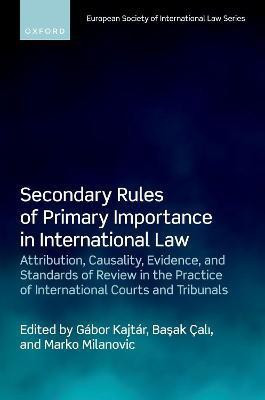Secondary Rules of Primary Importance in International Law(English, Hardcover, unknown)
Quick Overview
Product Price Comparison
The focus of this edited volume is the often-overlooked importance of secondary rules of international law. Secondary rules of international law-such as attribution, causality, and the standard and burden of proof-have often been neglected in scholarly literature and have seen fragmented application in international legal practice. Yet the systemic nature of international law entails that coherent and consistent application of such rules is a key element in reinforcing the legitimacy of decisions of international courts and tribunals. Accelerated development of international law and international litigation, coupled with the fragmented nature of the adjudicatory terrain calls for theoretical scrutiny and systemic analysis of the developments in the judicial treatment of secondary rules. This publication makes three important contributions to the study of secondary rules. First, it offers a comprehensive, expert doctrinal analysis of how standard of review, causation, evidentiary rules, and attribution operate in the case law of international courts or tribunals in fields spanning human rights, trade, investment, and humanitarian law. Second, it comparatively evaluates the divergent layers of meanings and normative expectations attached to secondary rules in international law scholarship as well as in the judicial practice of international courts and tribunals. Finally, the book investigates the role that secondary rules play in the development of the primary rules in international law and for the legitimacy of the decisions of international courts and tribunals. Earlier scholarly works have not problematized the role of secondary rules of international law in adjudication thoroughly. Secondary Rules of Primary Importance in International Law seeks to fill this gap by emphasizing the consequential nature of these secondary rules and argues that the outcome of litigation is fundamentally shaped by the exact standard of proof, standard of review, or attribution basis that is chosen by adjudicators. As such, the book offers an important resource for the study and practice of international law against the backdrop of the wide-ranging and fragmented nature of international adjudication.


